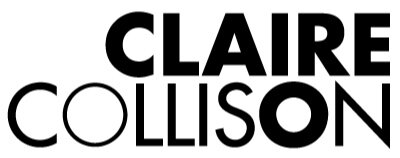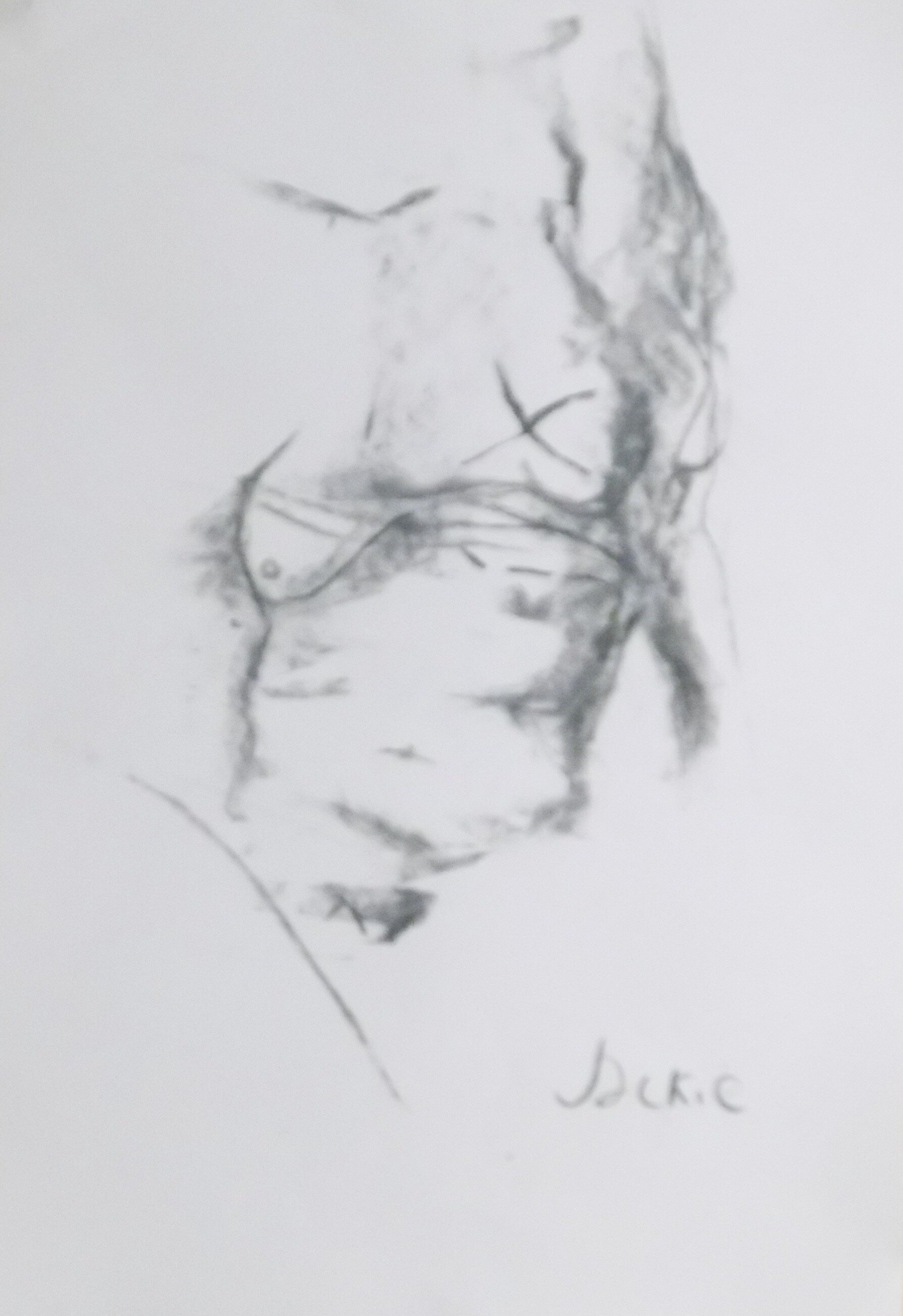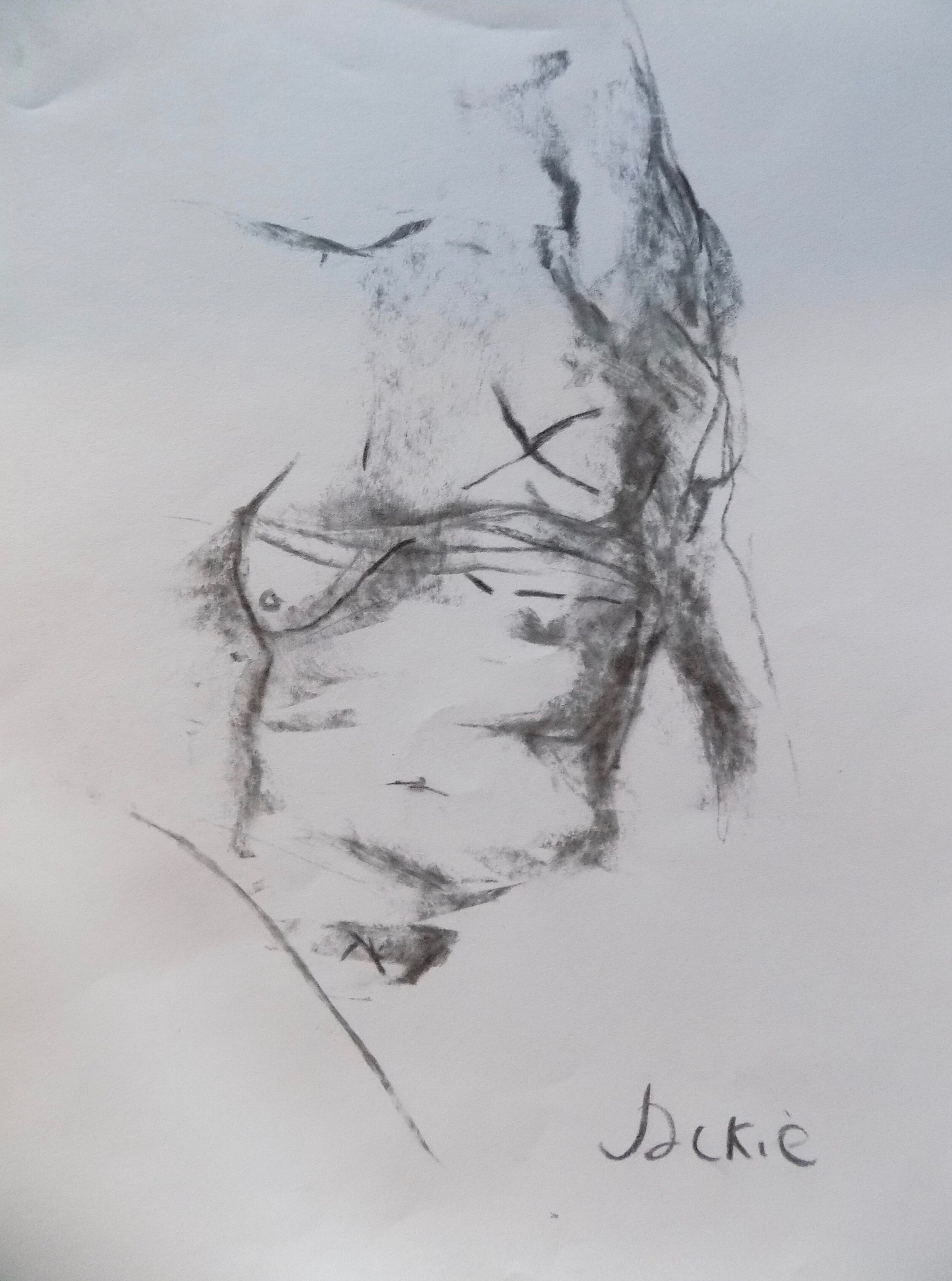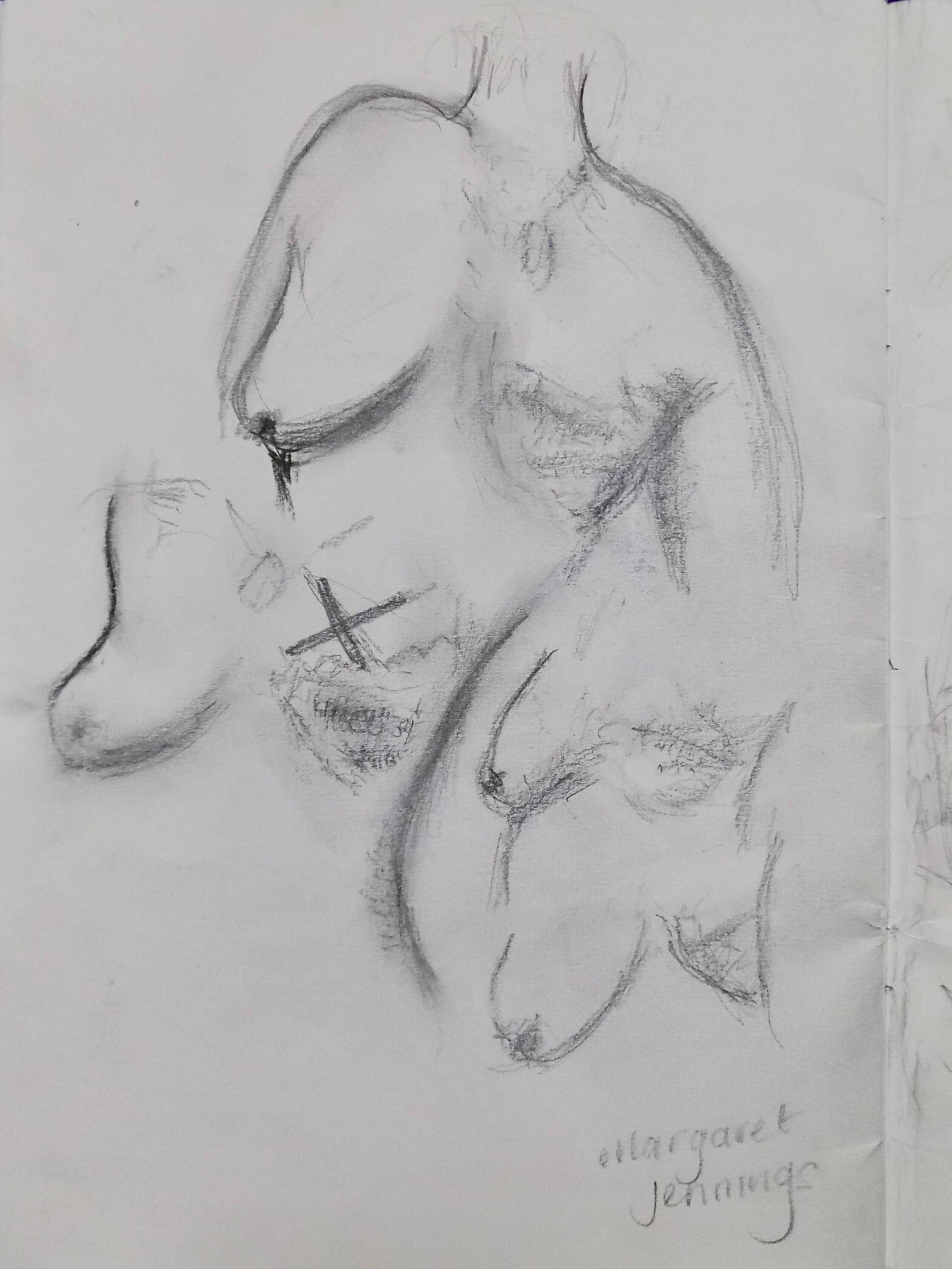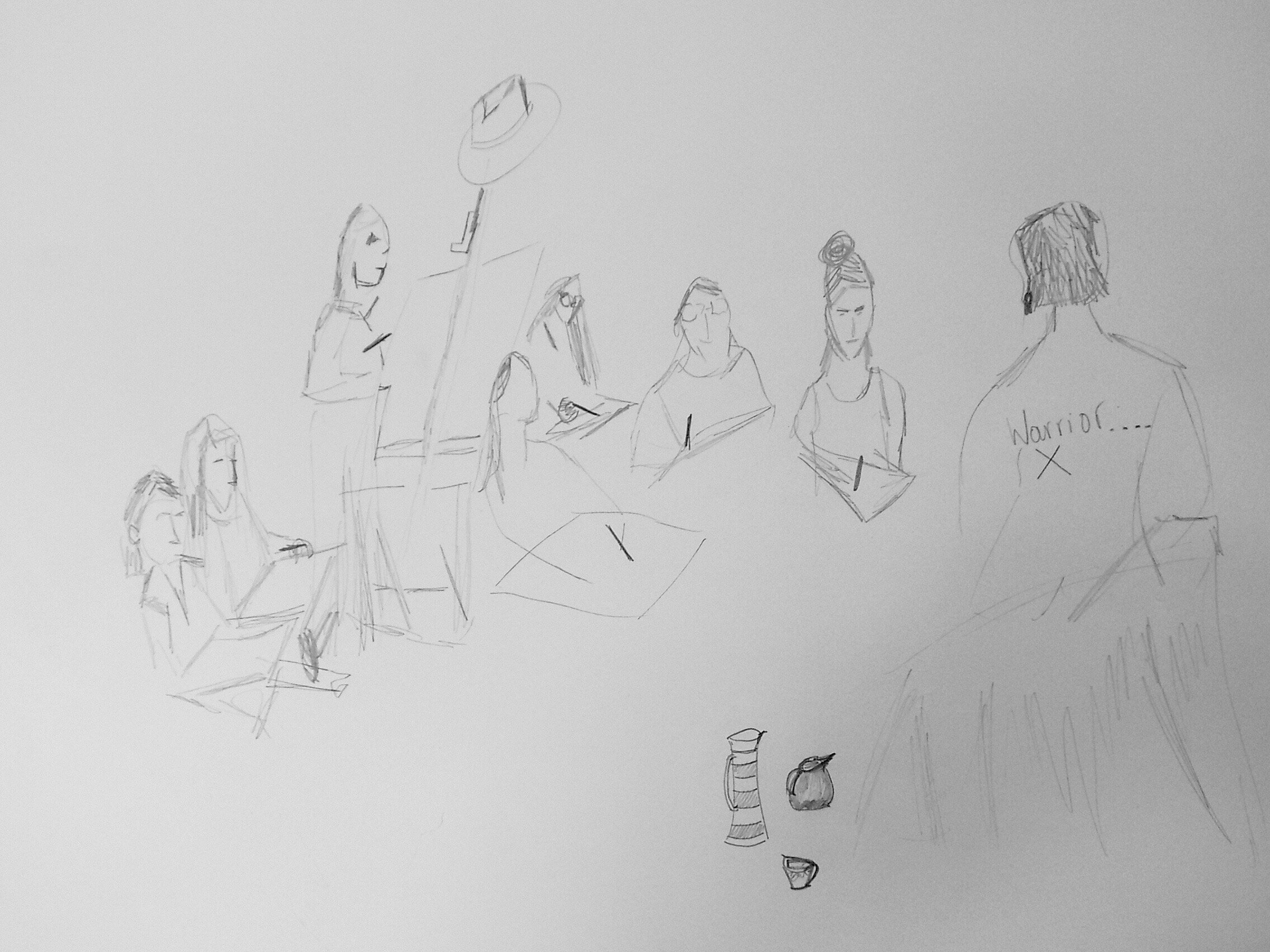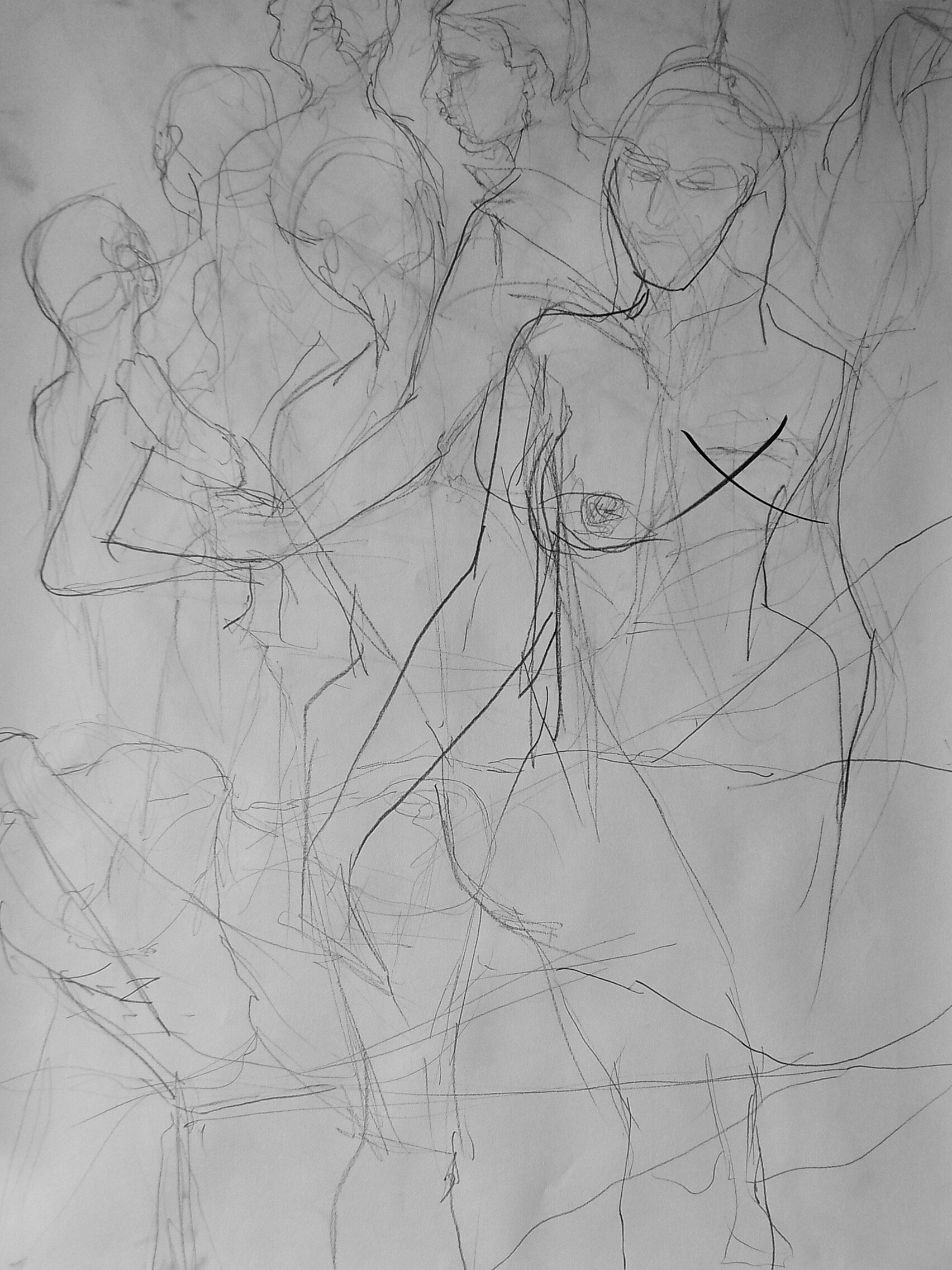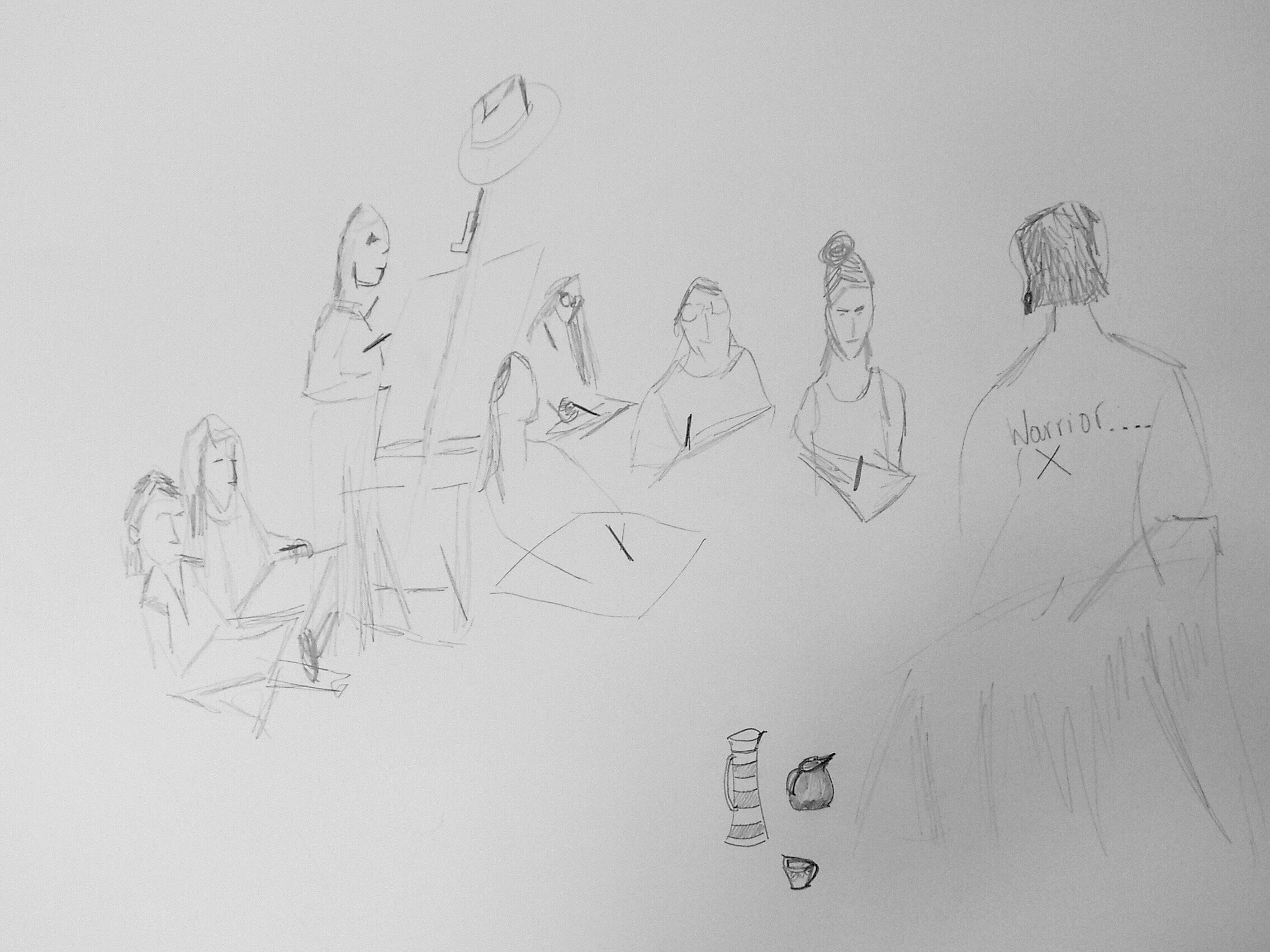X Marks the Spot
Drawings from various performances of Truth is Beauty documenting the moment when Claire re-enacts the moment X Marks the Spot
Edited transcript of Facebook post and ensuing conversation with Catherine Ayres and Rosy Martin
“When I first saw the photo of my friend, the artist and activist Jo Spence re-staging the moment when a cross was drawn over her breast, I felt sick. Like anyone else who had not been through that experience, it seemed an immensely brutal act. It made me feel outrage on Jo’s behalf; it provoked me to question the power dynamic between patient and the medical profession. Whose body was this? But then on the morning of my mastectomy the surgeon came and marked me up. He drew a series of lines on my breast, marking where he was to cut, and then he drew a cross – (DRAWS CROSS ON CHEST) ‘X-marks-the-spot’ – and I felt relief. They would be getting rid of the cancer. There would be no mistakes.”
(taken from my single breasted life modelling monologue ‘Truth Is Beauty’, which I shall be performing later this year.)
(redacted Facebook conversations)
Catherine Ayres [CA] The cross on my breast is one of the saddest things that has ever happened to me.
(redacted conversations)
Claire Collison[CC] Sad, of course, and something we need to grieve. The relief I write about is what I hadn’t expected to feel, and the moment when my surgeon drew those lines was extremely dignified and respectful, a ritual. This wasn’t something I’d been coerced into, but a choice I’d made, even if a hard choice. I hope that by sharing these difficult and intimate posts (and by performing my monologue) I can raise awareness amongst medical practitioners, as well as provide safe spaces where women like us can express the complexity of emotions around mastectomy.
[CA] I didn’t feel like this at all, but it’s important to say that I respect your feelings and I’m very glad you are sharing them. As you say, emotions around this are complex, and very different for every woman involved. You’ve always made me feel like I could tell you about my experiences and how I felt about losing a breast at 39, without judging me or saying my feelings were wrong. That’s why I love you. And why your work is SO important for women like me. In moments of frustration and rage at the whole ‘everyone just gets a reconstruction’ thing, your championing of unreconstructed women makes me feel 100% less alone. Thank you for what you do. It massively helps x
[CC] thank you. This means the world to me.
Rosy Martin [RM] Difficult ...Oh yes - no one woman's story is the same as another's. I knew, because I worked with Jo on this that for her it was a shock, an invasion and she said 'no' - she did not want this surgery and to re-enact the moment was important to her. She wanted to share this anger with an audience - to speak her truth. Different truths for different situations …..
[CC] Yes! You and Jo spoke her truth so well, that I took this iconic image as gospel: even though (ironically) the re-enaction was about manifesting a personal truth, it was so unique (and I was so in awe of this bravery) I read it as absolute... until it happened to me. And now the image is finally getting the recognition it deserves, the risk of it being read as 'the' response is even greater. So this is what I want to do, to move things on, to offer up the possibility that Jo's truth is vital as one woman's assertion of her response to what she was experiencing. Jo (with your facilitation, Rosy) gave us options. We all need to feel empowered to explore for ourselves what diagnosis and prognosis feels like for us, and to have the tools to explore, articulate and act on those feelings.
[RM] Yes - it was always about speaking one's own truth for oneself.
